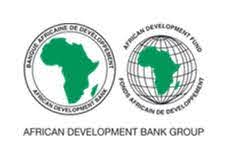By Haruna Gimba
The Board of Directors of the African Development Fund has approved a $9.8 million grant to Guinea Bissau for its national Control Support Project (PALPC), aimed at reducing the spread of the COVID-19 virus.
In a statement, the bank said the fund sought to boost the resilience of health system and communities, especially the most vulnerable.
Guinea Bissau has been affected by the COVID-19 pandemic which has led to food shortages, economic pressure and reduced livelihood opportunities in the West African nation.
The PALPC operations will target particularly vulnerable households, including those headed by women, and the poorest communities. The program will be implemented by the country’s High Commission for the fight against COVID-19 with assistance from UNICEF.
The COVID-19 pandemic has highlighted the weaknesses of the health system in Guinea-Bissau.
For the most part, health infrastructure is obsolete and poorly equipped, while an estimated 60 percent of the population does not have access to a health facility within 5 km. The West African country has one of the worst maternal and infant mortality rates in the world.
The health crisis is expected to compound joblessness, which stands at 11.6percent and especially affects the youth.
Like most of Africa, Guinea Bissau’s government reacted swiftly after COVID-19 arrived, closing all border entry points and imposing a country-wide curfew. All schools were closed since the third week of March 2020 and reopened in October 2020.
Before the COVID-19 pandemic, Guinea-Bissau’s economy was expected to grow at a sustained rate of five percent in 2020, but this has been revised downwards.
The sharp drop in cashew nut exports is likely to lead to a decline in tax revenues and deterioration in the country’s fiscal deficit, which is expected to rise from 3.1 percent of GDP before the pandemic in 2020 to a range of 4.5-4.8 percent of GDP.
The project is in line with Guinea Bissau’s response and contingency plan and aligns with the Bank’s High 5 agenda on ‘improving the quality of life for the people of Africa.
It is consistent with the Human Capital Strategy 2014-2018, extended to 2021, and in line with the Bank’s Strategy for Addressing Fragility and Building Resilience.
The project also aligns with the Bank’s Second Climate Change Action Plan, which focuses on a climate-resilient economy and the development of sustainable urban and health infrastructure resilient to the impacts of climate change.
The Bank announced a COVID-19 Response Facility in March to proactively support member countries and regional institutions, including the Africa Centres for Disease Control and Prevention (CDC Africa), to which funds have been granted for health system resilience and epidemiological surveillance.
Marie Laure Akin-Olugbade , Director General, Regional Operation for West Africa said the Bank’s extensive experience in projects aimed at controlling infectious epidemics and diseases such as Marburg disease and Ebola had enabled it to respond quickly.
“The Bank’s experience gained in operations in countries in fragile situations and the control of epidemics informed the project’s design, namely: the importance of carrying out community-based actions, the need, during health crises, to strengthen health systems and contracting with UN agencies to support the government in carrying out interventions,” she said.




